Why Our Family Leans Towards Classical Education
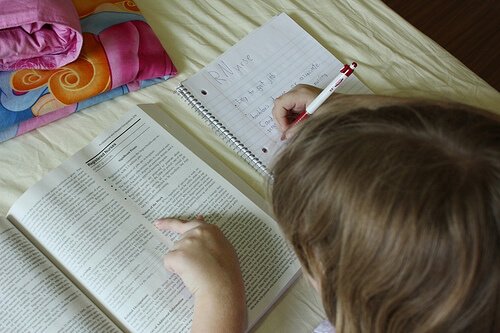
If you currently homeschool, or have spent any amount of time looking into it, you’ll know that there is a veritable smorgasbord of theories and methods out there.
For our family, although we still throw in a few eclectic options and have also been influenced by educators like Charlotte Mason, we tend towards a Classical education approach.
Classical education places primary importance on the fundamentals of learning, and there is a certain rigor and discipline about it, with a focus on developing character and virtue.
It is based on “The Trivium”, a pattern of learning which is based on the developmental stages and training of the human mind. In other words, it takes the natural ways that a child’s mind develops and works with it.
The 3 Stages of the Trivium
- Grammar (birth to ages 9 or 10): Language arts (grammar, spelling, phonics, copywork, reading) and mathematic facts will make up much of the work. Beyond that, these early years are focused on exposing children to a wide range of literature and facts in all areas of study, encouraging memorization, and overall just letting young children soak up knowledge as the sponges that they are at this age.
- Logic (ages 10- 13): Students begin to ask “why”, and learn about cause and effect, how different subjects and events relate to each other, and begin to learn logic and how to approach subjects more analytically.
- Rhetoric (ages 14-18): The final stage is combines the knowledge of the Grammar stage with the logic and abstract thinking of the Logic stage, and they begin to write and speak effectively, creatively and persuasively. It is also the time of more specialized study and training, as the student moves into adulthood.
For a much more detailed look at what Classical education is, read this article.
Image by John Morgan
What We Love About This Approach
- Classical education (in our opinion) works so well with the way that children naturally develop and mature, as the stages of learning really match developmental stages.
- It’s a rigorous academic style of learning, one which we think will give our children all of the necessary skills that they need to apply themselves to difficult tasks and to be able to learn anything that they choose to put their mind to.
- We hope that it will help to develop in them self-discipline, hard work ethic, and strong character.
- My husband and I both appreciate a structured approach. Some parents can unschool amazingly, but I think we would really struggle to do it well.
- Although I firmly believe ANY parent can homeschool, not just one that has a background in education, we really appreciate this strategic approach (and especially the way it is outlined in The Well-Trained Mind– more on this in a minute), because it helps us to make sure that we don’t leave any gaping holes in our kids’ education.
How Classical Education Looks in Our Home
Well, it’s not perfect!
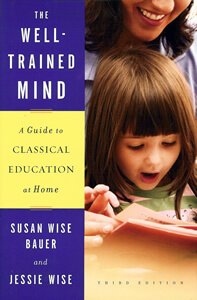 When I first read The Well-Trained Mind: A Guide to Classical Education at Home (which looks at each stage, and each subject within each stage, giving detailed curriculum and study guidelines), I was worried. Even in the 1st and 2nd grades, the sheer amount of information, curriculum and tasks that needed to be worked through looked more than a little daunting to this novice homeschooling mom!
When I first read The Well-Trained Mind: A Guide to Classical Education at Home (which looks at each stage, and each subject within each stage, giving detailed curriculum and study guidelines), I was worried. Even in the 1st and 2nd grades, the sheer amount of information, curriculum and tasks that needed to be worked through looked more than a little daunting to this novice homeschooling mom!
I was so relieved when I read Susan Wise Bauer’s description of a day-in-the-life when she also had young ones, including babies and toddlers in the mix.
If you’re feeling like you can’t match up with what you should be doing, read some of these examples of real days of Classical Educating moms, and breathe a huge sigh of relief.
Here’s what we’ve been doing this past year for our 7 year old daughter (our other children aren’t doing any formal schooling yet, though of course, they’re learning all the time!):
- Using First Language Lessons (grammar, memorization), Writing With Ease (narration/copywork/writing), Explode the Code (phonics).
- Abbie reads and reads and reads. Sometimes it’s random history or science books out of our large home library. Sometimes it’s various novels (she reads everything from C.S. Lewis to The Boxcar Children series). She’s now reading the Bible by herself as well.
- We use Story of the World for our history, and we’re on Year 1: Ancients.
- She studies piano one hour per week, as well as drums 45 minutes per week, and practices both daily (or at least, we try for daily). She is also taking some casual art lessons from her aunt, who is a wonderful artist, and she does plenty of her own drawings and other crafts at home.
- She is not doing Latin or Greek yet, but she is working on learning Spanish. She studies it with her Dad on Friday mornings, and then we have a Spanish tutor come to our home to work with the whole family two hours every Wednesday evening.
- Our science has been a mixed bag this year. We had already done some human biology in previous years (biology usually goes along with studying the Ancients in history), so we planned to study Habitats (which hasn’t happened), Rocks and Minerals (we’ve done this somewhat), and Simple Machines (we completed this unit). She’s now taking an 8-week course one morning a week with a small group of Christian homeschool students, and their theme is Water.
- We have LOVED using Legends and Leagues to study geography. She’s learned basics of mapping (N/S/E/W, equator, lattitude/longtiude, how to read and draw maps, etc.), the continents and oceans, among other things.
- She’s almost completed Math-U-See Beta and is using the web program Mathletics to do extra math practice and drilling.
It you think we’ve got this whole Classical Education thing under control, we don’t. I’ll be honest and say that we had a very busy past two years between our home-businesses, having a fourth baby, etc. If you compared what we’ve done and are currently doing with where we technically should be, you’d find that:
- We’re over a year behind in history (if we were following the 4-year rotation properly, we would be on Year 2 by now)
- We’re going to have to carry most of our Language Arts into the summer.
- Science was on and off this year, because I was having trouble fitting everything in.
- Our focus on memorization was quite weak.
- We haven’t read nearly as many supplemental history and ancient literature books from the library as I wanted to.
Did I fail in my education goals this year? Although there were times this year when I would have told you yes, I think I’m coming around to see that although I didn’t achieve everything I set out to do, I didn’t fail, either. We’ve been strong in some areas, and weak in others. Overall, she’s growing and developing and being exposed to the foundations of learning and vast amounts of knowledge.
This is just as much of a learning process for me, as I push myself to do the best I can for my children, but also give myself grace and trust the results with God, and not myself. I’m not perfect, as a mother or as a homeschooler, but the One in whom I entrust my children’s ultimate care to… He is perfect and completely trustworthy and He has plans for their good and His glory, no matter what my failings may be.
What I’m Excited About This Weekend…
I am so grateful to be heading out to Williamsburg, VA (in fact, I’m in the air as you read this post), where I will be spending the weekend with Susan Wise Bauer, a well-known author in the realm of Classical education, along with fellow homeschooling moms and bloggers, Tsh of Simple Mom, Jessica of Life as Mom, Mandi of Life…Your Way, and Heidi of Mt. Hope Chronicles.
We’ll be visiting the headquarters of Peace Hill Press and checking out all of the curriculum they offer (which includes Story of the World, First Language Lessons, among many others).
We’ll also be talking… a lot. The daily ins and outs of homeschooling, the bigger picture of Classical education, the balance of mothering and homeschooling and homemaking and even working or running a business.
I’d love to bring along your questions this weekend. Where are you at with homeschooling? What are your struggles? What type of approach have you taken? What would you like to know about Classical education and what it looks like to put it into practice?
When I return, I’ll be writing several posts, sharing some answers to your questions and interesting aspects of our discussions and time spent together!
What questions have I missed? Tell us a bit more about your own homeschooling journey and the questions that you have!
I’m so thankful to TriLight Health for their partial sponsorship of my trip to Virginia! You may have noticed me mention TriLight before, and that’s because I’m such a big fan of their herbal liquid remedies and supplements. Our family uses them frequently, and they’re one of my top recommendations for those wanting to use herbs for better health. Look forward to a 48-hour giveaway from TriLight Health coming up this weekend!

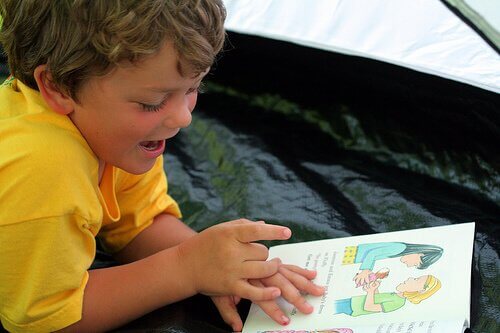
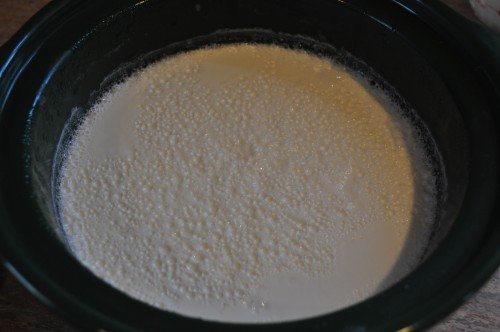

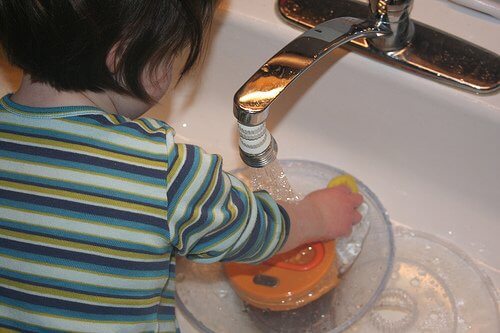
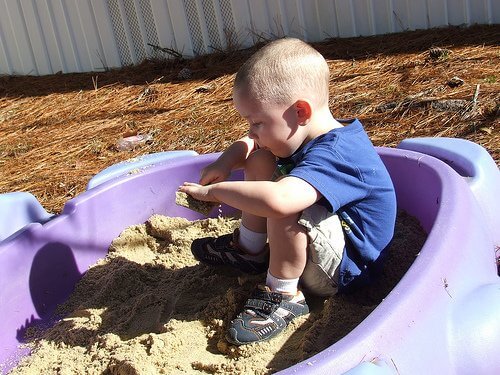

Wow! What a great thing you will be doing — I’m very jealous! 😉 We use all of the same curriculum pieces as you… I think my favorite is Writing With Ease. I have one child in Level 1 and one in Level 4. I have a question about Level 4: It is ok if you have to read the dictation passages to your children more than three or four times and then actually guide them (almost phrase by phrase) through it?? I think Level 4 is very hard… and while my daughter doesn’t complain, it is much harder this year.
I hope you have a wonderful trip!
My question would be: as structured and challenging as classical education can be, how does a mom (who has several children at home – some babies) do it all: homeschooling, housework, running a business, being a wife, ministering to others? Right now I have one child and, though we’re not even formally homeschooling yet (I plan on following the classical method), I am already a teeny it overwhelmed by raising him, keeping house, and starting a business. Throw in one more child and having to formally homeschool and I feel like I might go crazy! 😉
Thank you so much for this post! I’m saving it to “pick apart” (click on all links, take notes) later…
Thank you! This is so encouraging! I plan on following Classical Education too, and it’s helpful to see it in ‘real life’. Question: when did you start Language Lessons? My daughter is four, we’ve already finished 100 Easy Lessons and The Reading Lesson. We currently on Lesson 118 in Parent’s Ordinary Guide to Teaching Reading and on the website is says begin First LL around Lesson 140, which would be in the fall when we start Kindergarten (she’ll be 4 1/2). Also, did you find your daughter has done well with Ancient history as a first grader? I plan on beginning when my daughter is first grade age, 6, but some Classical Curriculum has it begin in second grade.
I was homeschooled, while my husband attended public school. We’ve decided to homeschool our children (son, 4 1/2; daughter, 1), but I feel that he struggles with what homeschooling actually looks like.
He feels our son is “behind” because he doesn’t yet write or read. But since he’s had zero interest, I haven’t pushed it. And living in an area where it’s common to send your kids to preschool at age 3, it doesn’t help my cause. 😉 I know that homeschooling grows and changes according to your needs/season of life, etc. I also know that my brother didn’t actually learn to read until he was 8 (and now is a voracious reader). I’m not worried about our son “being behind” because I know that with homeschooling, you can quickly “catch up”, especially since our son is super smart, very curious, and loves details and the “whys” of things. I need help in helping my husband understand that homeschooling doesn’t necessarily follow the public school model of when you learn certain things and that’s really ok! I think he’ll appreciate that freedom once he understands it.
Thank you so much for this post!!! My family has been applying the Classical approach to our homeschooling since the beginning. I found, too, the idea of the Classical method to be overwhelming. After doing this method now for several years, and seeing my first child moving into the second stage (the Logic stage), I can honestly say that it works!!! And it doesn’t have to be hard at all. It is about finding curricula that applies the premises of the Classical Method. And, for anyone who needs help, it abounds. Shortly after having my 5th child, we were really struggling. I wasn’t sure how to take our schooling from the early primary grades into higher primary studies. We rejoiced when we discovered Classical Conversations! It really helped us tremendously!
Something we all have to remember is that we are in a time of transition. Many of us were brought up in the public schools. We were taught at a time when many of the tried and true methods were thrown right out the window. We have seen where that kind of thinking leads and we don’t want to go there! Our jobs are extra hard because we are not only seeking to do schooling on our own, but also trying to ferret out proper models and methods, since our educations, even in the primary years, were inadequate. I have such high hopes for my daughters, should they and their husbands decide to homeschool! We, by God’s grace, have stumbled upon this better way of learning. Our girls will have already seen how this method works by the time they marry and have children. It won’t be such a struggle for them teaching their little ones! So all this work we are doing now is multiplied to following generations. I find that very exciting and definitely a motivator for our continued adherence to the Classical method.
Thank you for sharing your excellent post, Stephanie!
I’m just starting out with homeschool. My oldest is 4 so we are started pre k. I am so scared to mess everything up. We went to a homeschool convention a few weekends ago and I left feeling so overwhelmed. Any help would be great.
Home schooling has come so far. I was a pioneer back in the 80s. My son spent a couple years in an awesome Christian school. Then it closed so I started homeschooling in 2nd grade. One thing I learned at that time was their ability to memorize and how the skill is useful for the rest of their life. He memorized a bible verse a day starting in kindergarten. Today as a grown man his mind retains whole conversations. He excelled in college and although I know he is bright I think memorization helped him.
He learned to read phonetically, anther plus. It helps with spelling.
Oh what fun we had. He had a little business raising hamsters and mice, sold them to a pet store. Field trips to so many places.
Most of all its the quality of the family relationship that grows stronger instead of weaker. Carry on Im proud of all who do this.
Your weekend trip sounds like so much fun! (When are you coming to visit your friends/readers NC??) 🙂
This is so helpful, and I appreciate seasoned homeschooling moms sharing what works for them. Right now, a year away from kindergarten with our first, we are still considering complete homeschooling or a Christian classical, university model school in our town. (Basically, it’s 3 days school/2 days home–with optional electives added into the curriculum.) With 3 kids 4 and under come August, my hubby recently expressed that he doesn’t know if I will be able to homeschool (especially with working from home). This was really disappointing, but I know I need to submit to whatever he decides (and plus, we have a full year left–or two if we hold our summer baby back). We actually decided to send our oldest to a 9-hours/week Christian pre-k next year since we will have a new baby at home. We know other wahms pay for weekly mother’s helpers, etc., and the Lord dropped this opportunity in our laps for a partial scholarship to this great pre-k 5 minutes from our house….it will give me some alone time w/ my other two girls and maybe I can knock out some work during those hours while she’s learning.
ANYWAY….my question would be much like Alana’s. Truly, how do you all do it all? I will be transparent and say I am still struggling w/ working from home and keeping the house tidy. I am sure this is why my hubby is struggling with whether or not I can homeschool. I can’t wait to hear the wisdom you ladies have to offer!!
Hope you have a blast on your trip!!! Are you taking Kepler with you? 🙂
For our family we decided what on an acceptable chaos level. Our children are older & becoming involved in youth group, sports, co-op activities, etc. There are only so many hours in a day left for to conquer laundry, dishes, grading, etc. by myself. So we have all agreed that we will work within a certain level of dirty dishes on the counter, laundry piles, etc. The other thing I would encourage is teaching your children to be home helpers as soon as they can understand basic commands. Homeschooling families are always in the middle of something, science experiments, display boards, timelines, etc. We don’t leave our homes empty for 8 – 10 hours a day. Our messes are living, breathing, constantly moving monsters! Children need to learn early to clean up after themselves. We have 3 7th graders & 1 4th grader & they know that certain chores must be done daily if they expecte to be transported to activities outside the home. We have turned down invites to things because we exceeded our acceptable chaos level & need to spend time at home recovering. One reason we chose to homeschool was to preserve our family unit. A family should work together to keep everything running as smoothly as possible. These are just my own personal thoughts. I hope they bless you in some way.
Thank you for these thoughts!!
I enjoyed reading your post very much, and think you are doing a wonderful job using a classical curriculum to homeschool your daughter! I’ve been using a cc for 15 years and am a consultant for Mother of Divine Grace School, a cc distance learning education program. My two oldest children have graduated from college, the third is attending and the fourth will begin in the fall. Next year I will continue to homeschool the next three.
I think it’s important to remember that some years are harder to school than others. A baby year always takes adjustment, as does a death in the family, illness, a move, etc. I too, need to remind myself that I am not trying to fill a cup (or head!) with knowledge, as there is always so much to learn and always will be. We are life-long learners! Enjoy the journey because it IS a journey! Learning is like pieces of a puzzle, each piece inter-connecting with the next; before you know it the whole picture is right before your eyes and too soon, you are done learning with and teaching that child!
I am so happy that you have found the cc style, enjoy it and understand the reason behind the method. You are at the beginning of an exciting adventure! God bless you and yours!
Thanks for opening up the floor to questions! I’ve heard about the 4 year cycles of history/learning, but my questions are- Do you have to homeschool classically from the beginning or can you “switch in” later? Do you have to wait until a new 4 year cycle starts? What would the benefits/detriments to doing so be?
I think I’d like to start homeschooling classically around 2nd/3rd grade, but am hesitant to begin a kindergartner or 1st grader on such a rigorous program (my son is 2 now, so a lot could change between now and then!). Thanks in advance for any advice/thoughts!
Hi Stephanie! Your weekend trip sounds wonderful. Wish I could join you! I must confess I didn’t read through all the comments yet. I have a few moments here to send my question. I hope it isn’t a repeat. I have 4 children, 3 7th graders & 1 fourth grader. They have never been to school outside our home. I have attempted to follow classical education most of the 8 years we have been homeschooling. This past year I made an effort to see what aspects of classical education I didn’t do so a good job covering. Memorization & writing top the list. My question – My older children are dialectic stage soon to head into rhetoric stage. Do I try to incorporate some of the grammar stage foundations that I feel I didn’t cover well & to what extent. Thanks Stephanie. I hope your weekend is a true blessing.
Angelique
Susan Wise Bauer was a professor of mine at the College of William & Mary, in Williamsburg, VA. She’s amazing. I don’t know how she has the energy she does.
We also follow a classical education and love it! We use much of what you mentioned, but we do use Sonlight to fill in our History, Geography, Poetry, Readers (what our kids read aloud to me) and Read-Alouds (books I read aloud to the kids) … we love their literature rich books. One thing that we added this year was joining a Classical Conversations group and we absolutely love it! It has helped so much in bringing the memorization aspect into our daily routine.
I think too often moms overwhelm themselves during those first few years (kindergarten-2nd); we have kept things very simple during those years and it has made homeschooling with a large family much more manageable.
One thing I have struggled with at times is how to keep the little ones (preschooler/toddler, baby) busy and happy while we get school done!
As a second generation homeschooler, I was super excited to come across the idea for Classical education. It’s everything I wished my parens would teach me when I was being homeschooled myself. My parents were ‘unschoolers’ and sadly, my education is hugely lacking.
I have two kiddos, 4 1/2 and 20 months and am expecting #3 in June. My 4 year old is way ahead and has been reading since she was 3, has been doing reading lessons since she turned 4 until recently when her interest seemed to turn off. My husband and I decided to give her a ‘summer break’ until the begining of next school year when we will start the reading lessons and Saxon math K curriculum (she’s super excited to start).
But I do wonder how parents of large families (we plan on having a large family) manage teaching two or three children in different parts of the trivium. Classical education seems very labour intensive on Mum, especially during the first two stages. I’m sure we’d work it out, but any previous experiances and advice would be well appreciated.
I don’t have a large family, but have three children ages 8,10 and 12. I started my oldest (daughter) on Story of the World. When my next 2 children were ready to start history my daughter had not finished all 4 books from the series but I decided it would be easier (for me) to keep them all studying the same topic. So, I started both the boys on the 1st book in Story of the World and she started at the beginning (ancients) in the book used in the logic stage. So, she is learning more in depth than the boys but we are all on the same topic. This has helped, not only because all of them can discuss the same things, but she gets a refresher because she always listens as I read to the boys.
I think, at times, we all beat ourselves up over where we are lacking in our teaching. I had a wake up call recently. I was at the bookstore and was browsing a book about what every ??? (you fill it in) grader should know. I was surprised at how much my kids didn’t know! (at least according to this authors ideas). Then I got to the science section. Science is the subject I’ve always struggled with. I’d start something, but always quit and I felt like the kids never got a very good education in that area. So, I was worried to see what my kids should know. But, all of the things listed there were things all 3 of my kids could easily discuss with anyone! They have just picked it up along the way. So, I’ve stopped worrying about what they do or do not know, and just keep teaching them the best I can.
As someone recently married, my husband and I have already been discussing how we are going to educate our children. Classical education at home is certainly one of the options. I was home schooled, and the “dream” was for classical education, which I think is absolutely wonderful, but with so many children and a busy life it didn’t happen very well. This approach is something I want to see happen successfully with my children, as I think it’s one of the best ways to educate I have found. I studied Elementary Education for 2 1/2 years and realized this (classical education model) truly is a unique, and valuable, approach.
We lean classical ed too. I use Mother of Divine Grace curriculum. It’s Charlotte Mason influenced classical.
My oldest is 3, rounding down on 4 (end of June). I’m comfortable with where we’re at now (unstructured, letting her learn completely as she wants) mainly because I can see she is learning. But in the fall, I want to start emphasizing just a little sit-down time daily I think… And trying harder to get her to be my “helper” around the house – she’s plenty old enough and plenty interested. 🙂
My concern is for when she turns 5 and we start with more structured studies. At that point, I’ll also have a 3 year old (who is likely to be behind as she’s having some difficulties now) and an 18 month old. Knowing our pattern of having children, I may also be pregnant again! What I’m most wondering is how parents of lots of very young homeschoolers strike a balance. I find my kids challenging already without trying to work homeschooling into the day!
And my second question relates to my 2 year old – she has speech delays, sensory processing disorder, and is just generally behind. Aside from using Early Intervention, how can I help keep her on track, particularly once she ages out of EI (which I think they do at 4?)? I want to be sure she isn’t left behind. 🙂
I found the Stevenson Learning Program and Semple math to be wonderful for my daughter who has short term memory problems and was speech delayed because she is hard of hearing. They both use a multisensory approach to learning and lots of review, repetition and memorization. We spent 5 years on grades 1-3 in reading while I read course work to her to keep her up to grade level. But she could read at grade level by 8th grade. She was one of the better students in the technical school where she got an Associates degree in graphic design.
This entry is just so timely since my daughter will be going to school in a month, and I’m still thinking if I’ll choose homeschooling or not. What are the things that I should consider if I’ll choose homeschooling? Thanks.
Stephanie, what a cool opportunity for you to go on this trip! Heidi told me about it several weeks ago, and I thought it sounded amazing. Thanks for offering to field some of our questions! One thing I’d love to ask SWB is this: I heard that she spoke recently at a conference and expressed a distaste for parents’ “forcing” their kids to do things (school) a certain way. Yet I’ve always felt like implementing TWTM, especially with one or two of my kids, involves pushing them against their natural grain. I would sure love to hear her thoughts on how to accomplish a classical education using her approach (or another one) but using more “inspiring” than “requiring.”
P.S. I appreciate your honesty about your “imperfect,” a.k.a. realistic learning lifestyle!
I have a few tips to some of the mommies above, not because I have it all figured out! I have four children, ages 9, 7, 3 and 10 months, and we are always looking for ways to make it all work. Here are some things we’ve found:
1. The olders can sometimes teach the youngers. My 9yo often works with my 3yo on colors, shapes, letters, etc. or helps with the baby while I work with my 7yo. Next year, I plan to have her take my 7yo and then 4yo through First Language Lessons (the 7yo went through it with the 9yo, but I know he can use the repeat!). This not only helps mom out but reinforces what the olders have already learned, as well. If they can teach it, they’ve learned it!
2. For memory work, take advantage of audio cd’s! We used to participate in Classical Conversations, but a move took us to a location with no program. You can bet, however, that we are still using those memory cd’s! Children love learning songs and sayings, so take cd’s in the car, play them during meals, art or play time, and watch how fast they learn!
3. If you adopt the classical lifestyle, don’t stress about which cycle you should be in, whether a new curriculum you want to try is truly “classical,” or whether your child “measures up” to where some book says they should be. Guidelines are just guidelines. You know your children best; the way they learn, their strengths and weaknesses. They WILL learn what they need to learn, and remember, we are really striving to give them the ABILITY to become LIFELONG LEARNERS, not just filling their heads with knowledge! When asked, I tell people we are classical homeschoolers, with a little bit of Charlotte Mason and maybe even some “unschooling” thrown in. In other words, we learn the way WE learn! Isn’t it great to have that freedom?
Sorry this got so long! I hope it helps someone!
I love “The Well-Trained Mind,” and the classical approach appeals to me in several different ways. Thanks for this detailed post!
I look forward to the other posts after your trip to Peace Hill Press.
My question: Could (and how would) Classical education be done with a special needs child? I recognize that “special needs” is such a broad term, but going into all of my son’s developmental issues would take too long in a comment, hah. I definitely need (and already am the preschool stage) to cater to his personality and development. But with possible learning disability and possibly a permanent speech issue, I’d love to know a little about what Susan Wise Bauer thinks (and you all, too).
I know this post is a bit old, but special needs and classical education seem to come up a lot. Consider looking at the forum for Memoria Press. There’s a special needs/struggling learner board there now, and they have a book for doing classical education with special needs kids coming this spring (I think).
http://www.memoriapress.com/forum/
I taught K5 in a classical school for 5 years and fell in love with classical education! Every day, I walked by the bulletin board filled with examples of the older students’ work, and was in awe of what they accomplished… and a little jealous that I hadn’t had such an opportunity. My oldest is only 3.5 right now, but my husband and I have already determined that his education will be classical, either at home or in a classical school. I’ve already read Susan Wise Bauer’s book… and will be reading it over and over again!
Put this up on our favorite links!
Classical education is a fabulous method – for the right kind of kid and family.
My 3 children each have very different and diverse special needs. We tried the classical approach for a few years and found we hit a wall with it because it was just too rigorous and too much memory work for my special-needs kids. It was also too much work to keep up the classical for 1 and then do something completely different for the other 2.
I do highly recommend it to those families whose kids can keep up with it though. It’s very challenging.
I didn’t even know you could combine homeschooling with a classical education! I’m encouraged. But I also am very interested to see many of the previous questions answered because they are now my questions. 🙂 I hope you have a wonderful trip!
Stephanie, this was such an encouraging post! Thank you for being open and blunt about your adventures. I love it!
Stephanie,
Great post on Classical Education. I, too am a classical educator of my three. We have been involved in Classical Conversations for the past several years and it has been the greatest support group for our family and allows us to meet weekly w/other like minded families, educating their children in the classical model. The website is http://www.classicalconversations.com. We have groups all over the country and it is well worth looking into. My kids say it’s their favorite part of the week.
Best wishes!
Karin
We talked about Classical Conversations so much this weekend, and I have to confess, I’m a bit jealous that it isn’t really available in Canada. It sounds fantastic!
Hi Stephanie!
I think I found this post through Twitter a few days back…Anyway, I just keep coming back to your site–love it! So encouraging and inspiring! Like you, we lean towards classical education in our homeschool–couldn’t have articulated all the reasons better myself! Thanks for your transparency! We also have four children-ages 12 yrs-8 months…I’ve been using Tapestry of Grace to keep my 3 older kids “on the same page,” and we have really enjoyed it!
Blessings,
Jennifer
Welcome, Jennifer! I love your email… crazy like a homeschooler. That’s so perfect some days, isn’t it? 🙂
I am researching this year in regards to homeschooling… so far, I really like Veritas Press and Memoria Press. Do you know much about them? What do you like/dislike?
Thanks so much for this post!